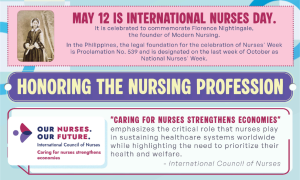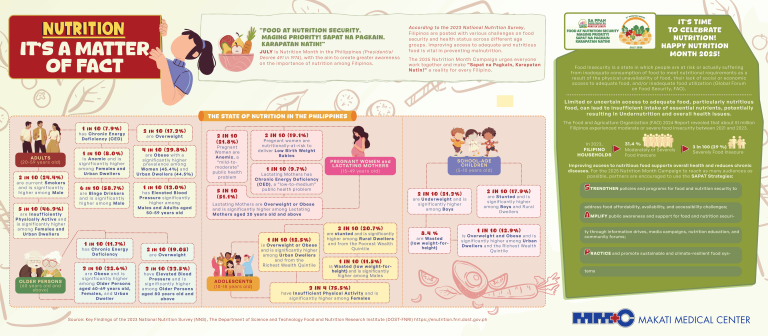Marites, a portmanteau of “mare, ano’ng latest?” (hey girl, what’s the latest?) is a colloquial term in the Philippines for someone who knows all the juicy stories, usually about someone else’s personal life.
Gossip or tsismis has long been a part of our daily life, involving anyone from neighbors and friends to coworkers and family members. This means that gossip can happen anytime, anywhere, and anyone can be the subject.
Gossip can cause harm when malicious but can also be harmless if done in jest. Can it have effects on one’s mental health? Are they all positive, or do they always come spiraling down?
What is Gossip?
What is considered gossip? The gossip people do today means talking about intimate or sensational stories and usually involves others’ personal or private affairs. However, this was not always the case.
The word gossip comes from the Old English word god-sibb, or godparent; at some point, it became a term given to a close female friend of a woman after giving birth. It was a word that reflected the powerful bond between them. Somewhere along the way, it turned into the definition people know today.
Gossip is also often interchanged with rumor, but they are two different things. Gossip is when an individual discusses or passes on personal details about someone to another person or group of persons. On the other hand, a rumor is circulating unverified specific information about someone or something.
|
Rumors |
Gossip |
|
|
To better understand the difference between these two, here are some examples.
Gossip: Did you hear about Charmaine? Apparently, she got scammed by her friend.
Rumor: I heard that J.K Rowling is working on a new Harry Potter book, and it is about their lives after graduating from Hogwarts.
Gossip: Did you know that Jacob proposed to his girlfriend but got rejected? How embarrassing!
Rumor: Rumor has it that Jessica got accepted into a prestigious university.
Why Do People Gossip?
A 2019 study found that the 467 subjects spent an average of 52 minutes a day gossiping, with 75% of the gossip neutral and around 15% deemed negative talk.
People gossip for various reasons. Sharing negative or personal details that can negatively affect a person may be a way for some individuals to feel better about themselves. Those who struggle to develop self-esteem and identity may also use gossip to cope. Others say that gossiping is a way to get attention.
Knowing confidential information about another person can make some people feel powerful, important, and accepted.
The Mental Health Effects of Gossip
In a 2015 study, scientists looked at brain imaging of both men and women as they heard positive and negative gossip about their friends, families, celebrities, and even themselves. The results showed increased activity in the prefrontal cortex, the area of the brain used to navigate complex social behaviors.
The study also found activity in the caudate nucleus—the brain’s reward center—when gossiping about celebrities. Unsurprisingly, the subjects were happier to hear positive gossip about themselves—not so much when it was negative—but were not as upset when hearing negative stories of others.
Gossiping is not inherently harmful. There are a few proven benefits to it, as outrageous as it sounds. Matthew Feinberg, an assistant professor of organizational behavior at the University of Toronto’s Rotman School of Management, explored the benefits of gossiping in a 2012 study.
They found that when subjects heard an injustice or someone else’s anti-social behavior, their heart rates increased, but actively gossiping about something or someone soothed them and brought their heart rates down. According to the study, the act of gossiping “helps calm the body.”
What to Do About Toxic Gossiping
There are no exact ways how to avoid gossip. It is an integral tool for observational learning because people exchange information when gossiping. However, it becomes harder to bear when it is toxic. Here are some tips about toxic gossiping.
- Ignore it
Sometimes, it is more difficult and energy-consuming to address the issue. If it is not worth addressing, it is probably better off not doing so.
- Control negative emotions
Take a moment to step back from the situation and use calming strategies to help regulate negative emotions. Try breathing exercises, unplug from work, exercise, or take some time off.
- Take the high road
While this may not be for everyone, forgiveness can be the most beneficial way to cope. According to Johns Hopkins Medicine, “the act of forgiveness can reap huge rewards for health, lowering the risk of heart attack; improving cholesterol levels and sleep; and reducing pain, blood pressure, and levels of anxiety, depression, and stress.”
- De-identify from the situation
The subject of the gossip should recognize that the situation is not a reflection of themselves. It is said that gossipers spread false information about someone to alleviate their anxieties and low self-esteem. Therefore, these problem behaviors are not about the subject but someone jealous or even threatened.
- Confront the gossiper directly
Some may find confrontation the best and most efficient way to cut the main source of information. Often, a gossiper does not expect to be addressed by the person they are talking about, and so, assertively expressing their feelings to that person can be an excellent way for the subject to illustrate the effects of the gossip. It may also help the gossiper realize the impact of their actions.
A Double-Edged Sword
Indeed, gossiping has benefits. And while the gossiper may feel good about themselves after talking about others, this could have serious mental repercussions on their subject.
Think about what you are doing and how it affects others, including yourself. Stopping harmful gossip is just as important as staying away from it to maintain good mental health. Makati Medical Center offers world-class healthcare services like neuropsychiatry to help address your mental health issues. Reach out to us today.











